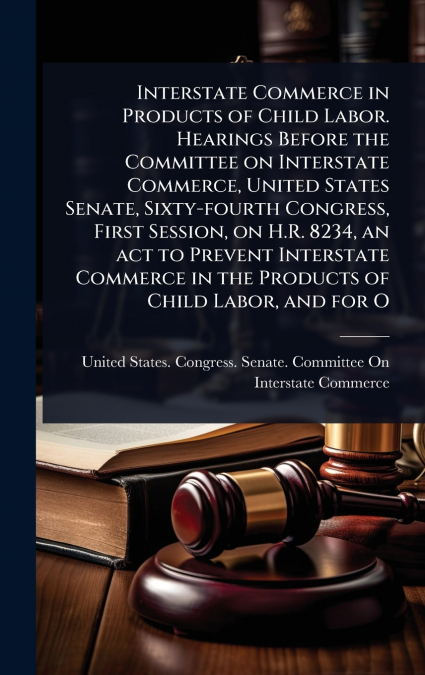
United States. Congress. Senate. Comm...
This historical document contains the proceedings of the United States Senate Committee on Interstate Commerce hearings regarding H.R. 8234, âan act to Prevent Interstate Commerce in the Products of Child Labor.â Held during the Sixty-fourth Congress, First Session in 1916, the hearings offer a detailed examination of the arguments for and against federal intervention in regulating child labor practices across state lines. The transcript provides invaluable insights into the social, economic, and political considerations that shaped early 20th-century debates on labor laws and the protection of children. It showcases the perspectives of senators, industry representatives, and advocates, revealing the complexities and challenges of balancing economic interests with the well-being of young workers. A crucial resource for researchers and students of legal history, labor history, and children’s studies, this document captures a pivotal moment in the ongoing struggle to safeguard children from exploitation.This work has been selected by scholars as being culturally important, and is part of the knowledge base of civilization as we know it. This work was reproduced from the original artifact, and remains as true to the original work as possible. Therefore, you will see the original copyright references, library stamps (as most of these works have been housed in our most important libraries around the world), and other notations in the work.This work is in the public domain in the United States of America, and possibly other nations. Within the United States, you may freely copy and distribute this work, as no entity (individual or corporate) has a copyright on the body of the work.As a reproduction of a historical artifact, this work may contain missing or blurred pages, poor pictures, errant marks, etc. Scholars believe, and we concur, that this work is important enough to be preserved, reproduced, and made generally available to the public. We appreciate your support of the preservation process, and thank you for being an important part of keeping this knowledge alive and relevant.